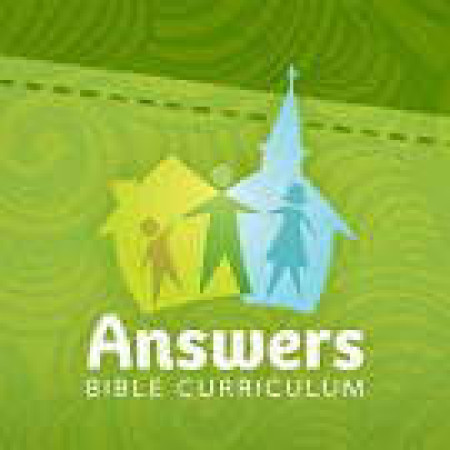In this lesson, we discuss what the Bible can tell us about dinosaurs and whether the evolutionary claim that dinosaurs died out before humans existed lines up with Scripture.
Sermons & Sunday Schools
Sermons/Sunday Schools by David Capoccia: (Page 43)
Creation Days 1-4
- Speaker: David Capoccia
- Series: Answers Bible Curriculum, First Edition
- Text: Genesis 1:1-19
- Topics: Apologetics, Creation & The Flood
- Downloads: mp3
In this lesson, we discuss the meaning of the word “day” in Genesis 1, the events of creation days 1-4, and the significance of plant kinds.
Creation: God Creates the World
- Speaker: David Capoccia
- Series: Answers Bible Curriculum, First Edition
- Text: Genesis 1:1-31
- Topics: Apologetics, Creation & The Flood
- Downloads: mp3
In this lesson, we overview the creation sequence presented in Genesis 1 and discuss whether the Bible’s account and evolutionary theory are compatible.
The Value of a Biblical Worldview
- Speaker: David Capoccia
- Series: Answers Bible Curriculum, First Edition
- Text: Selected Scriptures
- Topics: Apologetics, Bible, Biblical Interpretation, Holiness/Christian Living
- Downloads: mp3
In this lesson, we tie up the ideas about God, the Bible, and the gospel we’ve examined this quarter. We also discuss worldview quiz questions to help assess ourselves as to whether we really trust the Bible to be our ultimate authority or not.
What is the Gospel?
- Speaker: David Capoccia
- Series: Answers Bible Curriculum, First Edition
- Text: Selected Scriptures
- Topics: Salvation & The Gospel
- Downloads: mp3
In this lesson, we use the Seven Cs of History to explain what the gospel message of salvation is and what God’s ultimate purpose is in creation and redemption.
The Seven Cs of History
- Speaker: David Capoccia
- Series: Answers Bible Curriculum, First Edition
- Text: Selected Scriptures
- Topics: Apologetics, Creation & The Flood, Salvation & The Gospel
- Downloads: mp3
In this lesson, we discuss seven biblical events that profoundly affect all people and how these events can serve as a general outline of human history.
The Trinity
- Speaker: David Capoccia
- Series: Answers Bible Curriculum, First Edition
- Text: Selected Scriptures
- Topics: Apologetics, Creation & The Flood, The Trinity
- Downloads: mp3
In this lesson, we discuss whether the trinity is a biblical doctrine, and, if so, what the best way is to explain and defend the trinity.
What is God Like?
- Speaker: David Capoccia
- Series: Answers Bible Curriculum, First Edition
- Text: Selected Scriptures
- Topics: Joy & Contentment
- Downloads: mp3
In this lesson, we overview the character of God and discuss how knowing and seeing God more is the ultimate motivation for Christian living.
How Do I Know God Exists?
- Speaker: David Capoccia
- Series: Answers Bible Curriculum, First Edition
- Text: Selected Scriptures
- Topics: Apologetics, God's Existence
- Downloads: mp3
In this lesson, we discuss how we ought to respond to one of the most basic questions of apologetics and whether the Bible calls us to prove God’s existence with evidence from creation or not.
Starting With Scripture
- Speaker: David Capoccia
- Series: Answers Bible Curriculum, First Edition
- Text: Selected Scriptures
- Topics: Apologetics, Bible
- Downloads: mp3
In this lesson, we define apologetics, discuss the difference between evidential and presuppositional approaches to apologetics, and show why we must always start with the Bible, not extra-biblical evidence, when defending the faith.

